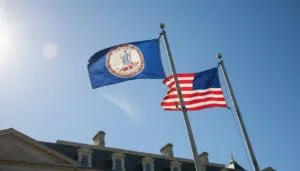When a documentary starts with a confession between old friends, one of whom has just come out as a trans woman, it’s easy to brace for something sentimental or overly scripted.
But Will & Harper, Netflix’s 2024 standout, directed by Josh Greenbaum, takes a different route. It’s a bumpy, emotional, often hilarious road trip across America, led by comedy icon Will Ferrell and longtime collaborator Harper Steele.
And while the landscape rolls by outside the car window, what we’re really watching is a quiet, sincere evolution of a friendship, of public awareness, and of two people meeting each other again in a new light.
Let’s talk about why this film hits home, even when it doesn’t always get everything perfectly right.
Table of Contents
ToggleA Personal Journey with National Echoes

Will Ferrell and Harper Steele go way back—think 1995, first-day-on-Saturday Night Live kind of history. Harper (formerly Andrew Steele) wrote sketches that helped shape Will’s career and later became the head writer and a creative director for Funny or Die.
Their dynamic was built on decades of collaboration, laughter, and shared language. But when Harper came out as transgender in 2021, she introduced herself to Will again, this time as the person she’d always been.
That moment becomes the spark for a 16-day cross-country road trip from New York to Los Angeles, designed not just to reconnect but to explore what it means to live openly and authentically, especially as a trans woman in today’s America.
But don’t expect anything flashy. The film’s power lies in the quiet pauses, the clumsy questions, and the beer-fueled bar talks that pop up between stretches of highway and scenes with awkward governors.
Where to Watch
If we intrigued you with the story and you don’t want any spoilers, head over to Netflix and stream it. In case you have some geographical restrictions, you can use VeePn to bypass them easily. Now, let’s continue with the review.
A Road Trip That’s Anything But Superficial
On paper, Will & Harper sounds like a buddy comedy—and in many ways, it is. There’s karaoke, hot air balloons, dirt track races, and motel Pringles.
But behind the antics is something much more raw: a real-time conversation about identity, acceptance, and the learning curve that comes with being a supportive friend.
Memorable Stops on the Trip
- Amarillo, Texas: At a saloon, Harper’s discomfort in a hyper-masculine environment reminds us that not all parts of the country feel safe for trans people. It’s an important moment – tense, unfiltered, and completely grounded in reality.
- Indiana: The duo briefly interacts with the state’s governor, who had recently signed a bill that blocks gender-affirming care for minors. It’s not confrontational, but the context speaks volumes.
- Backroads Bars: Some of the most touching scenes happen in low-key settings—dive bars where Harper is misgendered but still finds moments of warmth, or where strangers surprise her with unexpected kindness.
There’s no grand revelation or dramatic finale. And that’s what makes it work. The camera doesn’t try to manipulate your emotions; it just lets the journey unfold.
A Friendship on Display – Flawed, Funny, and Fully Human
Much of the magic here comes from the dynamic between Will and Harper. Will admits early on that he knows virtually nothing about trans issues. And instead of pretending to be an instant expert, he leans into the discomfort with sincerity, and plenty of comic relief.
There’s a scene where he asks Harper if she plans on having bottom surgery. It’s awkward, even slightly intrusive. But Harper doesn’t flinch. She gently redirects. It’s clear they’ve built a space where questions can be asked, even if they don’t always land gracefully.
That honesty, the kind that comes from decades of mutual respect, is what keeps the documentary from veering into preachy territory. Will isn’t performing allyship. He’s fumbling through it. And Harper isn’t a spokesperson. She’s just a person trying to live her life without being treated like a symbol.
Themes That Resonate Long After the Credits Roll
While the documentary never feels didactic, it still packs a quiet punch when it comes to the broader social themes it brushes up against.
Transgender Identity Without the Filter
Harper’s story is shown with refreshing nuance. She isn’t presented as “inspirational” in a way that feels artificial. She’s just… Harper.
A trans woman who loves cheap beer, country roads, and late-night diners. A boomer who just wants to be herself without constantly defending her right to exist.
Her love for the country she grew up in is complicated. She treasures parts of American culture that others might overlook, even as she navigates the risk and rejection that still lingers in many states.
Allyship That’s Not Always Smooth
Will doesn’t always say the right thing. He sometimes stumbles over pronouns. He asks blunt questions.
But the takeaway isn’t that he’s a bad friend; it’s that allyship is a process. It’s not just rainbow flags and hashtags. It’s showing up. Being uncomfortable. Listening. Laughing anyway.
In one unexpectedly poignant scene, Will admits that for all his years in the entertainment world, he hadn’t really had a conversation like this before. His honesty mirrors that of many cis viewers, and in that way, he becomes a kind of surrogate for the audience.
America in 2024 – As It Was, Not As We Pretend
The documentary doesn’t hammer home its political subtext. It doesn’t need to. By simply showing Harper and Will moving through spaces, some welcoming, some not, it makes its point.
Legislation like the Indiana bill is mentioned only briefly, but it carries weight. The implication is clear: no matter how “tolerant” some places claim to be, there’s still a lot of work to do.
Yet, the film also leaves room for hope. There are scenes where strangers surprise Will and Harper with empathy. A bartender in Arkansas uses the right pronouns. A local at a race track offers a toast. Those small wins feel bigger in the current climate.
Critics Loved It—And They’re Right
Here’s how major reviewers summed up the film:
| Source | Reviewer | Verdict |
| Roger Ebert | Matt Zoller Seitz | Called it a “teaching tool” wrapped in a buddy comedy. Praised its warmth. |
| Them.us | Not listed | Highlighted the honest portrayal of trans life and Harper’s grounded charm. |
| The Guardian | Not listed | Described it as “flawed but vital”—awkward moments included. |
| SlashFilm | Not listed | Called it “a sweet little road trip comedy” and “a hopeful reminder.” |
| PureWow | Not listed | Said it brought the whole family to tears, multiple times. |
Even reviews that noted missteps, such as Will’s sometimes clumsy questions, emphasized that those moments are what give the film its humanity. Perfection isn’t the goal. Real connection is.
The Power of Visibility Without Tokenism

Harper’s presence on screen feels important not because she’s framed as a “trailblazer,” but because she gets to be a full person, funny, messy, sharp, and emotional. Her story isn’t distilled into soundbites. She’s not edited to fit a mold. And that, in itself, feels radical.
In a media landscape that often reduces trans people to tropes or headlines, Will & Harper offers something else: space.
It’s that space, created by the film but also by Will’s friendship, that makes the documentary feel less like a statement and more like an invitation. An invitation to sit in the discomfort, share a laugh, and maybe start asking better questions.
Why It Matters, Especially Now
As states begin to pass dangerous anti-trans legislation, our community’s fear is rising. The goal of anti-equality extremists is clear: they want to force trans, nonbinary, & other LGBTQ+ people out of society.
But, we aren’t going anywhere. https://t.co/DyCPWDSLCb
— HRC (@HRC) February 8, 2024
With anti-trans legislation on the rise and trans visibility more politicized than ever, Will & Harper arrives at a moment when simple, human stories are more needed than ever.
By choosing to center the film around Harper’s real-life journey, her jokes, her fears, and her Midwestern sass, the filmmakers let audiences see past the noise.
And by using Will Ferrell’s mainstream appeal to open the door for viewers who might not otherwise tune in, the film pulls off something subtle but powerful.
It doesn’t shout. It doesn’t preach. It just rolls the camera and lets two friends talk.
Watch It, Sit With It, Talk About It
@cbssundaymorning Will Ferrell and Harper Steele’s evolving friendship after Steele’s transition is the focus of the Netflix documentary “Will & Harper,” where they embark on a 17-day road trip filled with laughter, tears, and self-discovery. #comedy #documentary #friendship ♬ original sound – CBS Sunday Morning
At 114 minutes, Will & Harper doesn’t try to cover everything. It doesn’t answer all the big questions about gender, politics, or identity. What it does do—and does well—is give us two people figuring things out together, one mile at a time.
It’s not flawless, but that’s part of the charm. The awkwardness, the pauses, the well-meaning stumbles—all of it feels real. And in today’s media environment, real matters more than ever.
Whether you’re already immersed in LGBTQ+ issues or just curious about how friendship can stretch and grow, Will & Harper is worth your time. It won’t hand you a neat conclusion. But it will give you something better: a reason to care.
Related Posts:
- Safest Countries in the World in 2025 - GPI…
- 26 Most Dangerous Cities in US - Updated Statistics for 2025
- Capital Cities in Europe: Top Destinations For You…
- America's Murder Capitals: A 2025 Ranking of the…
- What Is the Most Dangerous Country in the World in 2025
- How to Break Open a Safe - 7 Effective Methods








